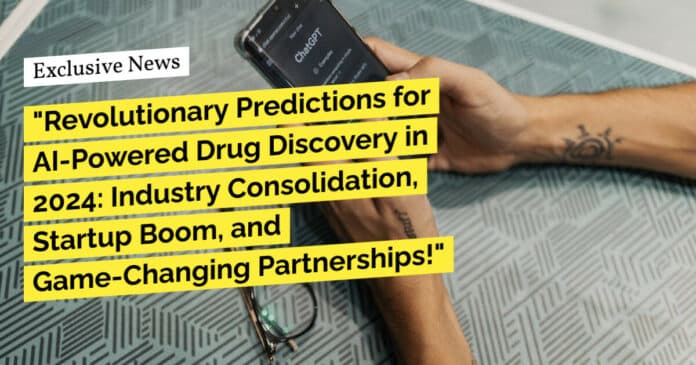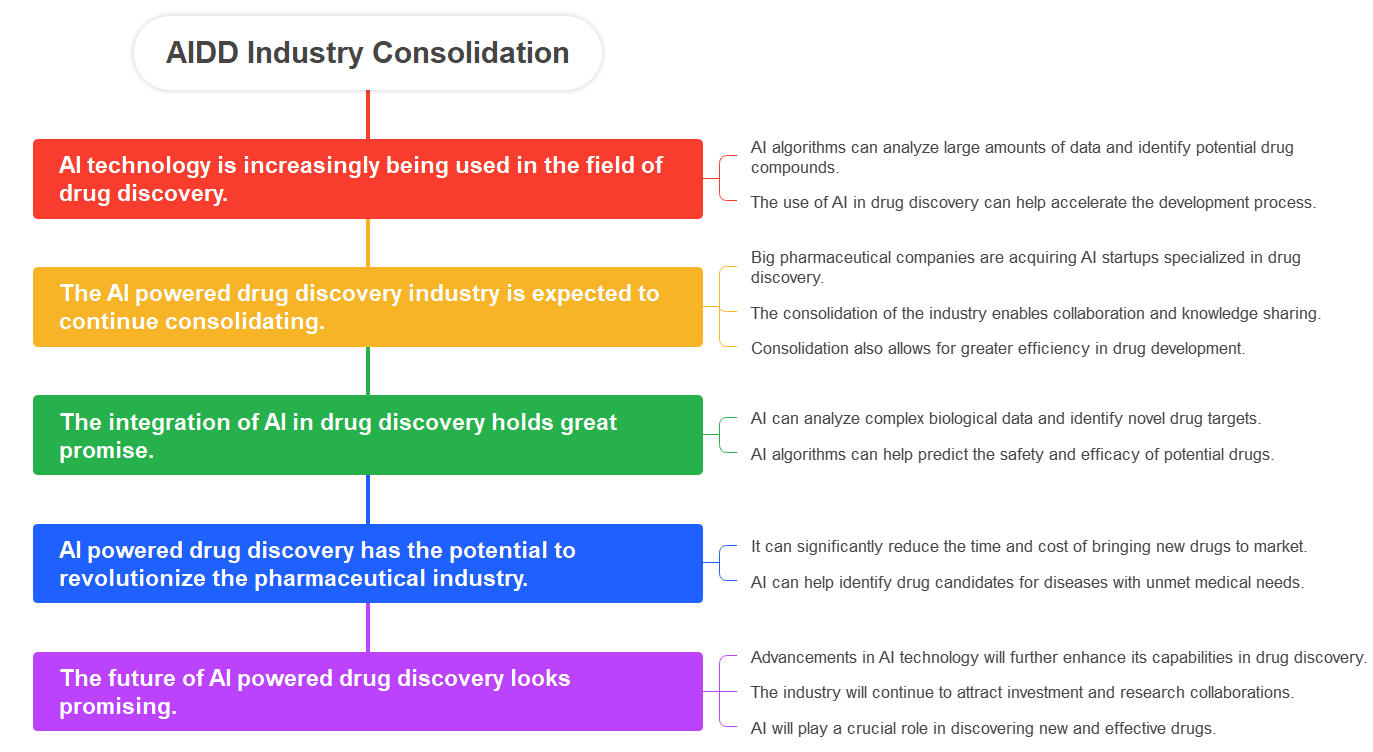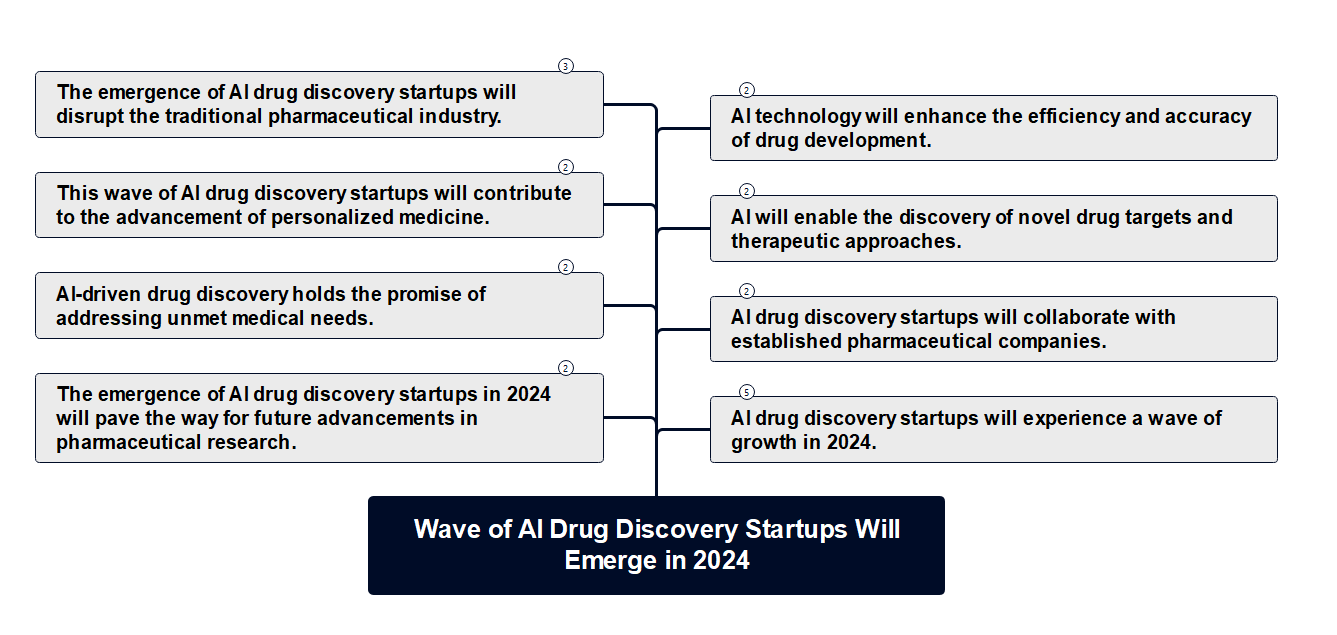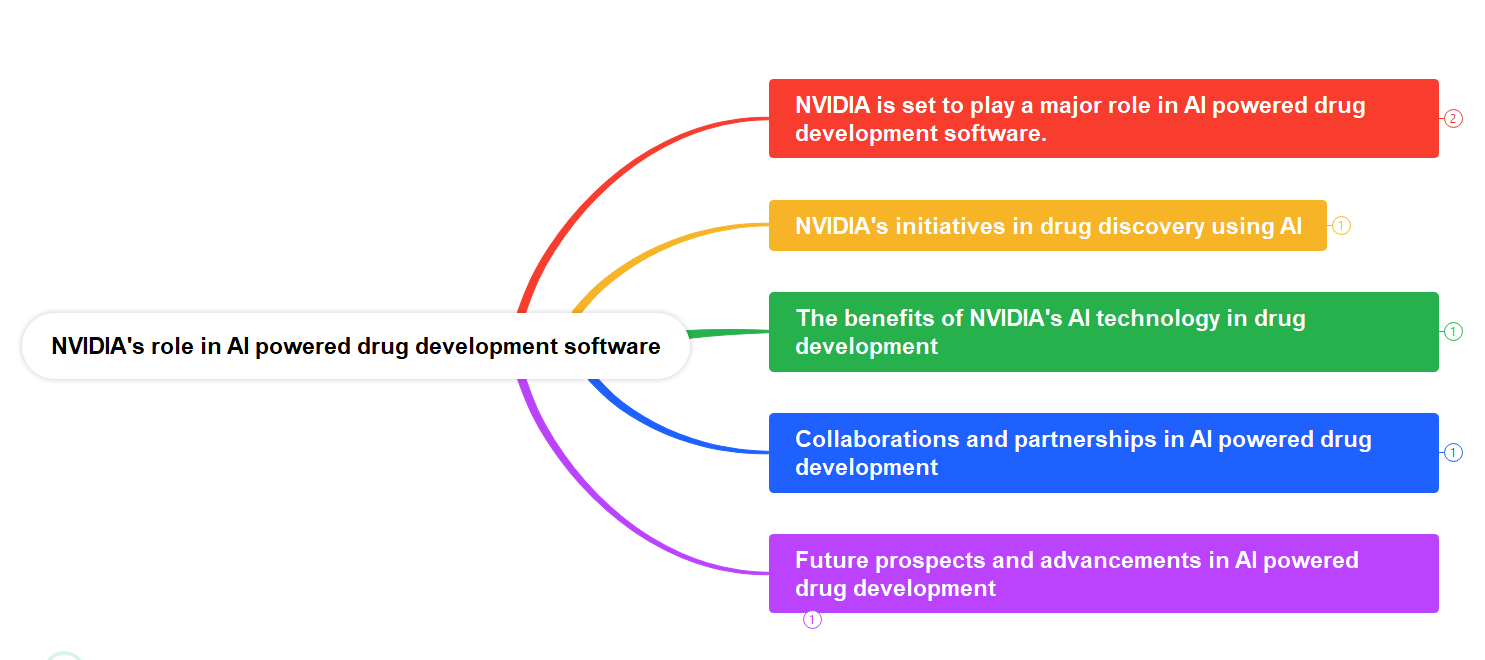
Five Projections for the AI Powered Drug Discovery Industry in 2024
The field of AI powered drug discovery (AIDD) has seen significant advancements in recent years, particularly in the use of generative AI for drug development and aging research. As we look forward to 2024, several predictions can be made regarding the future of this industry. In this article, we will explore five key predictions for the AIDD industry in 2024, touching upon industry consolidation, the emergence of new startups, the role of NVIDIA and Isomorphic Labs, and the deployment of large language models (LLMs) in pharmaceutical companies.
How Artificial Intelligence is being used Drug Discovery
– 4 Approaches Biopharma Industry Is using!
[embedded content]
1. The AI Powered Drug Discovery Industry Will Continue to Consolidate
In 2024, the AIDD industry is expected to undergo consolidation, following the trend set in 2023. While generative AI has shown promise, many legacy companies and first-generation AIDD companies formed prior to the deep learning revolution have struggled to deliver on their promises of speed and cost reductions. Investors, who closely examine factors such as pipelines, revenue, partnerships, and progress, may become increasingly frustrated with the slow pace of these companies. Consequently, we may see layoffs
and restructuring in these organizations as they refocus on their internal pipelines. Additionally, partnerships between AIDD companies and pharmaceutical companies are likely to become more relationship-based rather than results-driven.

2. A Wave of AI Drug Discovery Startups Will Emerge
2024 is expected to witness the emergence of numerous startups and pivots in the AI drug discovery space. Many individuals and investors who have failed to find success in other niches or have raised significant funding without a compelling offering may pivot towards drug discovery. This trend could attract more experienced tech-bio talent, leading to the formation of new companies or increased hiring opportunities. However, it is important to note that while several startups may enter the field, most are likely to fail, pivot, or struggle to make a significant impact.

3. Transition from Platform Partnerships to Asset or Software Licensing
Pharmaceutical companies are becoming increasingly aware of the potential of generative AI in drug discovery. As a result, they are more inclined to license assets from established AIDD companies rather than form platform partnerships. This transition is driven by the realization that coordination with external partners often leads to delays and friction at the preclinical level, making it difficult to progress beyond Phase I. By licensing AI-generated assets, pharmaceutical companies can take advantage of the quality and novelty of these assets and streamline their drug development process. The trend of licensing assets is likely to continue in 2024, with more pharmaceutical companies recognizing the value of AI-generated molecules.
4. NVIDIA Will Play a Major Role in AIDD Software
NVIDIA’s graphics processing units (GPUs) have played a significant role in advancing deep learning. The company has been at the forefront of deep learning advancements, with their GPUs being instrumental in driving these advancements. In recent years, NVIDIA has deepened its foray into healthcare, including the pharmaceutical industry. Their healthcare platform, led by the ambitious executive, Kimberly Powell, has gained traction and established itself as a prominent player in the field. In 2024, we predict that NVIDIA will further strengthen its healthcare platform, providing drug discovery players with powerful tools for AI-powered research. While this may not significantly impact established AIDD companies, it is likely to discourage the formation of startups without unique differentiators, and add credibility to the field as a whole.

5. Isomorphic Labs Will Secure Multiple Pharma Deals
DeepMind, the leader in AI theory, made a foray into biotechnology with the AlphaFold algorithm, which gained significant popularity in the scientific community. In 2021, DeepMind spun off Isomorphic Labs, headed by Demis Hassabis, to further develop and validate their AI platform. In 2024, we anticipate Isomorphic Labs announcing partnerships with pharmaceutical companies, leveraging their advanced generative AI capabilities to target difficult-to-drug diseases. Isomorphic Labs has already begun conversations with pharmaceutical executives and its validation in the industry will be closely watched. While platform partnerships in the AIDD industry do not always yield results, Isomorphic Labs’ unique expertise and reputation make them deserving of an opportunity to make an impact.
6. Massive Deployment of Large Language Models (LLMs) on the Microsoft Platform
The release of ChatGPT in 2022 has revolutionized the use of large language models in various domains, including pharmaceuticals. In 2023, LLMs became widely adopted in the industry, with Microsoft emerging as a leading provider. In 2024, we expect a significant growth in the use of LLMs in the pharmaceutical and biotech sectors, with many companies opting for Microsoft’s platform due to its ease of use and compliance capabilities. While some startups may offer superior performance in benchmarks, their deployment in large pharmaceutical companies faces significant compliance and legal challenges. Microsoft’s Azure Cloud offers a robust platform for implementing sophisticated AI architectures, which is likely to drive the adoption of LLMs in the industry.
AI in Drug Discovery – Who Owns The Patents?
[embedded content]
Conclusion
In conclusion, the AI-powered drug discovery industry is poised for significant developments in 2024. While consolidation is expected, new startups may emerge, and established players will continue to refine their AI platforms and form partnerships with pharmaceutical companies. NVIDIA’s healthcare platform and Isomorphic Labs’ advanced generative AI capabilities are likely to play major roles, while large language models will be widely deployed on the Microsoft platform. These predictions highlight the progress and challenges in the AIDD industry as it continues to push the boundaries of drug discovery.
Keywords: AI powered drug discovery, AIDD, generative AI, drug development, aging research, industry consolidation, AI startups, NVIDIA, Isomorphic Labs, large language models, Microsoft platform.
Source: Alex’s Article on Forbes
- SEO Powered Content & PR Distribution. Get Amplified Today.
- PlatoData.Network Vertical Generative Ai. Empower Yourself. Access Here.
- PlatoAiStream. Web3 Intelligence. Knowledge Amplified. Access Here.
- PlatoESG. Carbon, CleanTech, Energy, Environment, Solar, Waste Management. Access Here.
- PlatoHealth. Biotech and Clinical Trials Intelligence. Access Here.
- Source: https://www.biotecnika.org/2024/01/ai-powered-drug-discovery-industry-prediction-2024/

